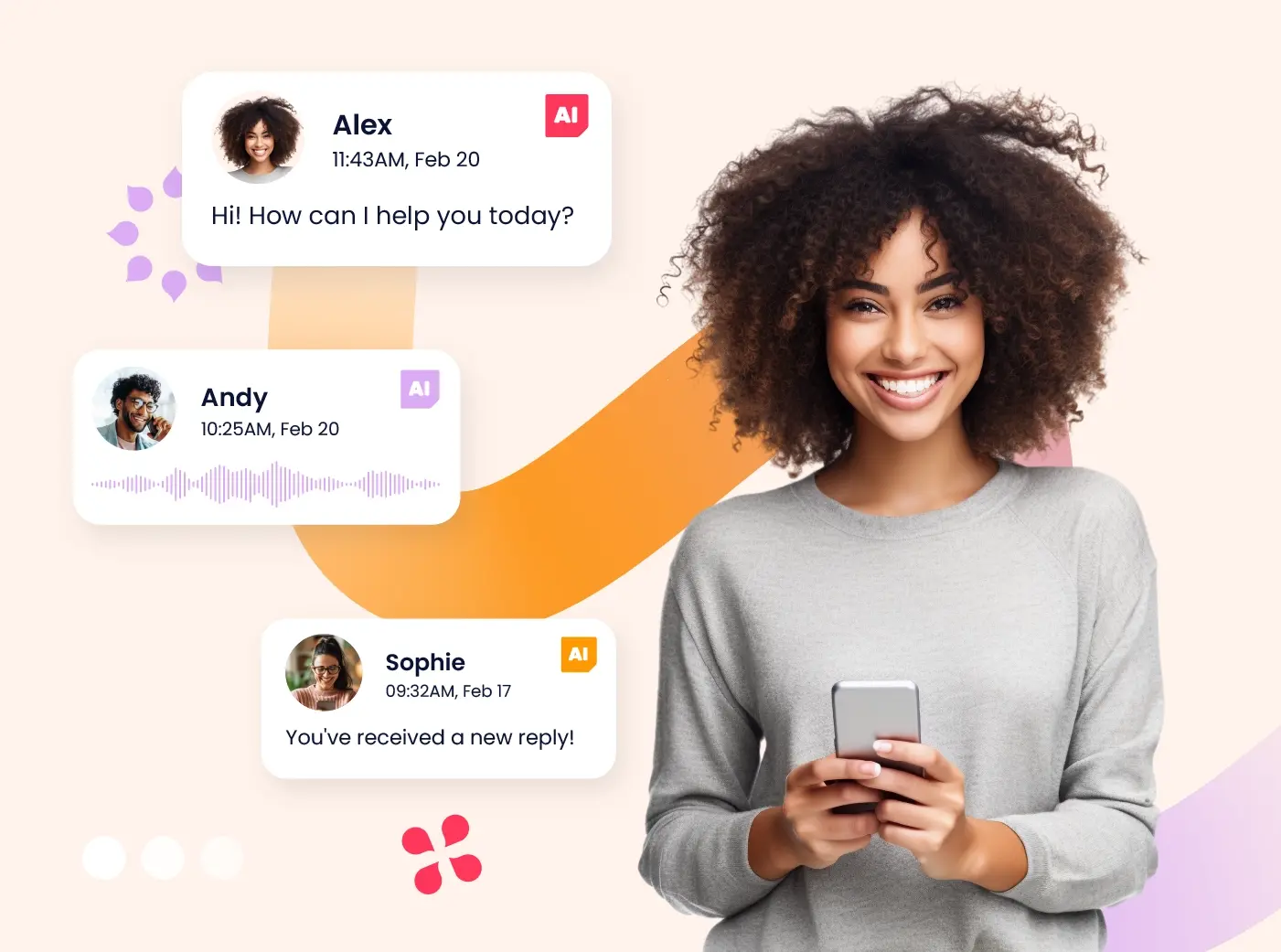At Puzzel’s annual event, Elevate ‘23, artificial intelligence took centre stage. Shedding light on one of this year’s hottest topics, we brought together industry experts to explore the profound impact AI has on the world of customer experience. Among these experts was Zack Kass, AI Futurist and former GTM leader at OpenAI.
Here, we’ll delve into the history of AI and explore its role in shaping the next industrial revolution with insights from Zack’s enlightening session.
The AI revolution: How did we get here?
While AI’s popularity skyrocketed with OpenAI’s release of ChatGPT in November 2022, it actually goes way back. Here’s a fascinating fact: The term "artificial intelligence" was coined in 1965 when a group of scientists and mathematicians discussed the concept of creating an artificial brain.
Fast forward to 2017, a transformative moment occurred when a group of 12 Google researchers birthed the modern transformer, reshaping the construction of AI models. Simultaneously, the years between 2010 and 2020 witnessed an internet explosion and a qualitative leap in data structure, setting the stage for today's AI landscape.
The future of AI: the journey towards AGI
AI visionary Zack Kass believes we are now standing on the verge of the most profound industrial revolution in human history. Unlike previous revolutions introducing innovations like cars and the internet, he argues that the AI revolution has the potential to impact every facet of our lives.
Zack envisions AI evolving into a utility, much like the electrical grid or the internet. He introduces the concept of Artificial General Intelligence (AGI), which is the theory that AI systems will eventually perform any task that humans can. Picture a world where humans can get help with almost any cognitive task; the possibilities would be numerous.
However, the path to AGI is not without its challenges. Zack identifies some of these risks, including the existentialism problem, also known as the Alignment Problem. This refers to the challenge of ensuring AI systems and their objectives align with human values and goals, emphasising the importance of designing them to make ethical decisions in line with human interests.
Understanding and addressing these challenges is pivotal in harnessing the full potential of AI on the journey towards AGI.
Navigating the potential benefits of AI
AI has the capacity to benefit humans in numerous ways. Zack identifies some of these benefits, including:
- Scientific breakthroughs: AI can drive scientific advancements that transform the human experience, including breakthroughs in fields like fusion and quantum computing. Researchers are already using AI to analyse vast datasets, discover patterns, and make predictions, leading to groundbreaking discoveries in various scientific disciplines.
- Worker productivity and job satisfaction: Jobs, especially those in compute-intensive roles like customer support, are poised for significant improvements. AI can enable a more human-centric work environment, enhancing productivity and job satisfaction. Chatbots, virtual assistants, and AI-driven automation are already transforming the workplace, allowing employees to focus on more creative and meaningful tasks.
- Time and the opportunity to be more human: AI technologies can free up valuable time doing repetitive and manual tasks for us, allowing us more time to be human. Automation, smart assistants, and AI-powered tools can streamline daily tasks, from managing schedules to handling routine household chores. This newfound freedom allows us to dedicate our time to activities that nurture our humanity, fostering creativity, relationships, and personal growth.
Leveraging AI technologies can elevate business productivity, streamline automation, and boost employee satisfaction. Above all, Zack emphasises one crucial point: AI will give us more time. He underscores its potential to free us from daily, monotonous tasks, allowing more time for activities that align with our human values.
How can you prepare for the AI future?
It’s no longer a question of when you should adopt, but rather what you should adopt. Zack emphasises the importance of embracing AI products to stay up-to-date in this technological revolution. The adoption of AI-driven solutions, whether in customer service, data analysis, or product development, is no longer a luxury but a necessity for staying competitive in the market.
Simultaneously, he highlights the significance of nurturing humanistic qualities. While AI excels in computational domains, it cannot replicate the unique qualities that make us human.
Zack’s message is clear: By embracing AI products and cultivating human values, we can harness the power of AI and forge a better future for ourselves and generations to come. The integration of AI into our lives should complement our humanity, enhancing our capabilities while preserving the essence of what makes us truly human.
Ready to elevate your contact centre using AI? Let us show you how! Book a free demo today






